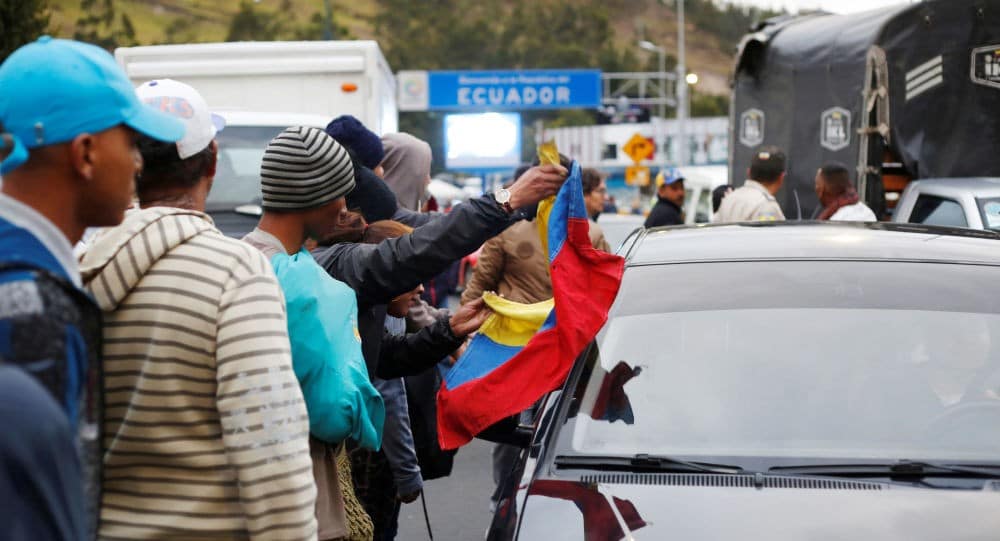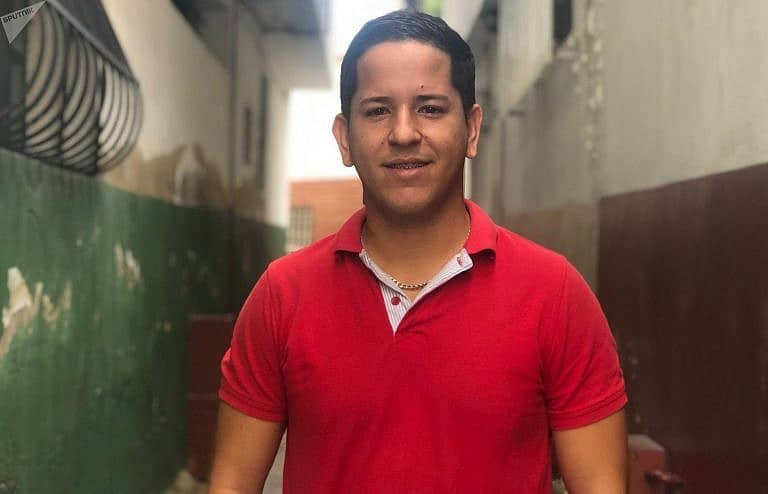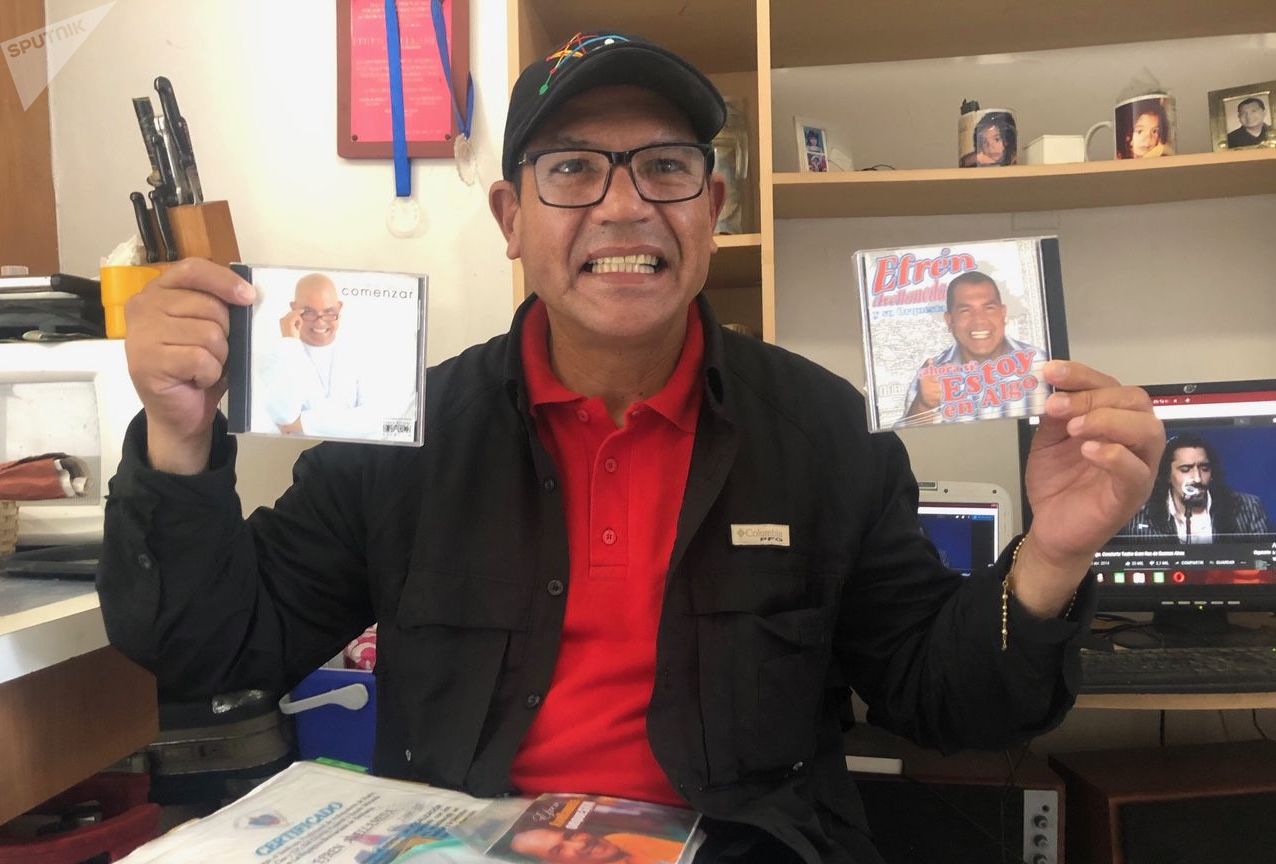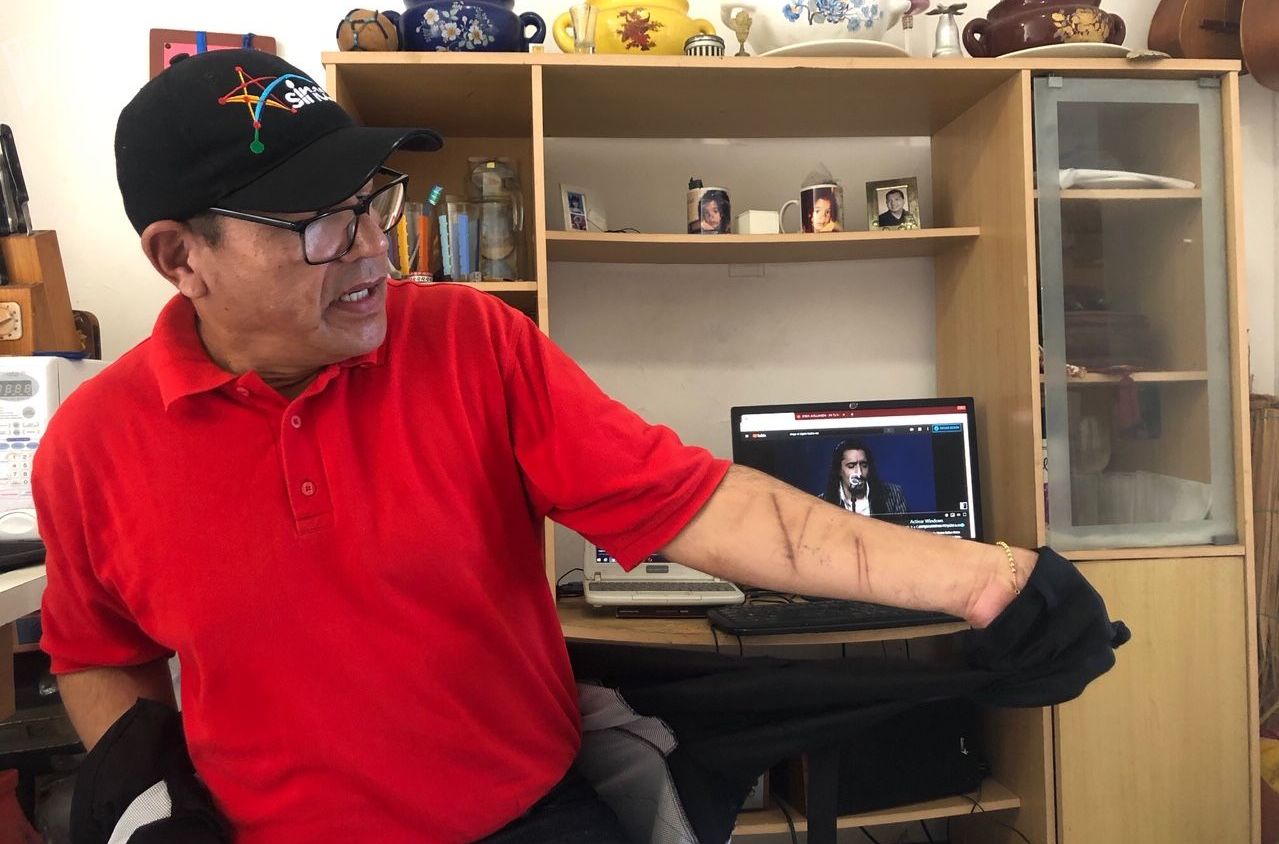Venezuelans Coming Back Home After Migrating and the Stories Nobody Publishes

Photo: Daniel Tapia, Reuters

Orinoco Tribune – News and opinion pieces about Venezuela and beyond
From Venezuela and made by Venezuelan Chavistas

Photo: Daniel Tapia, Reuters
The Venezuelan exodus begins to come back home. In the last year, more than 15,000 citizens have returned to Venezuela, according to the Foreign Ministry. Following the phenomenon, the government created the Vuelta a la Patria program, which offers free flights to Caracas from several countries in Latin America. And if flights are not enough, the waiting list keeps growing.
Pack your bags, sell everything quickly, believe that life will be better anywhere else. There will be more opportunities. The migration target as imminent need to avoid a personal catastrophe is the mantra many Venezuelans who have left their country in recent years have placed their faith.
It does not matter where. It does not matter what to do. The only thing that matters is to cross the border that in many cases do not allow the personal and family development of a new (and not so new) generation. The country is in crisis. Venezuela. And the message that flies through the atmosphere is almost homogenous: you have to leave.
The UN refugee agency (UNHCR) estimates that more than 4 million Venezuelans would have left the country since the end of 2015. The agency rates these numbers as “alarming.” There are no official government data to contrast with these figures but the truth is that, everywhere, talking about the exodus is common.
Everyone knows someone who is gone. Or the classic cousin, dad, son, nephew or childhood friend who left, who is doing well, or about whom it’s not known how he is doing but occasionally sends a remittance to the family he left behind.
What is hardly talked about in the mainstream media is those Venezuelans who are returning. The reasons for the return are diverse: the classic “everything that glitters is not gold”, the prevailing xenophobia against migrants in the destination countries, which are eminently Latin American. A widespread feeling among many of them is that “having a bad time outside, I prefer to have a bad time in my country, with my family.” An overwhelming logic.
The government of Nicolás Maduro has launched the Vuelta a la Patria Program. It has been running for about a year and it is an assistance program for Venezuelans who want to return and have no way of doing it. Once back they are included in the social protection system of Venezuela. There are no rigorous requirements to get on one of these flights except to be Venezuelan and want to return.
RELATED CONTENT: To Mitigate Crisis in Venezuela Trump Grants $10 Million to Guaido
According to data from the Ministry of Foreign Affairs, a total of 15,856 nationals have returned so far on one of these flights. The country from which more Venezuelans have returned is Brazil, with a total of 7,285 returnees, followed by Peru (3,491) and Ecuador (3,242). Since its launch, the program has operated a total of 86 completely free flights.
From Colombia, specifically from the city of Cali, Daniel, 29, returned less than a month after a year, with his wife and son, four. They did not return with one of these government flights but the same way they left Venezuela: by bus, by their own means. Saving. First to leave, then to return.
Daniel tells his story sitting in the house that he shares with his whole family (8 people live among brothers, nephews, and other relatives) in the popular neighborhood of Manicomio in Caracas. “It’s my dad’s house, that’s why I didn’t sell it,” says Daniel, jokingly, but seriously. And laughs.

Daniel, a Venezuelan migrant who returned to Venezuela (Photo: Esther Yánez)
He sold everything to leave and left only a mattress just in case things were not going well when he arrived in Cali. There they had promised him a job of his own. He is a cameraman, worked in television in Venezuela, manages the recording sets, the camera cranes and the stress of breaking news. When his profession stopped giving him a remuneration that would allow him to reach the end of the month (it is the usual history of the common Venezuelan). The crisis and hyperinflation eat wages and devalue the national currency), he and his wife began to consider the idea of emigration.
In Cali they told him that he could dedicate himself to the audiovisual part in the mayor’s office. “They even had a drone,” he says. “But then I realized that nothing was what they had promised me. The work did not exist and I ran into reality.”
Daniel and his family chose Colombia because it is the neighboring country and because they believed that culturally it would be similar to them. The bus trip was already an odyssey. They did not get tickets with any travel agency and had to pay a “vacuna,” an illegal fee, to a guy they met by chance and promised to put them on a bus to their destination.
They trusted him and arrived in Cúcuta, on the Colombian-Venezuelan border , and then to Cali after hours of travel in a “deplorable” transport, as Daniel himself describes. “Along the way, we crashed like three or four times.” And he tells an anecdote that makes you want to smile and sweat cold at the same time. The bus ran over a cow that had gone off the road and killed it. The passengers, about twenty Venezuelans, got off the transport and began to compulsively cut the meat of the animal as they could and put it in pots or improvised plastic containers. The metaphor of need, or anxiety, is creepy.
They paid about $ 30 each for that trip. “The hardest thing is to realize that many times, the dream that you sold yourself or that the social networks sold to you, does not exist,” explains Daniel. “But when you understand it you are already there and you have to face the situation.”
Without the promised work, he started looking for anything. He managed to solve the accommodation by working as a bricklayer in the church of a town near the capital of Valle del Cauca. In exchange for that, the priest lent them an apartment that belonged to the parish. During the week he did some freelance work that occasionally came in as an assistant to a photographer he met there, and on the weekends he sold goodies in a food supply.
“My son never adapted. He was always crying because he missed his grandparents.” Apart from that, the worst, according to Daniel, was feeling the rejection of people.
“‘Be careful, they are Venezuelans, they can steal from you’; those were things we heard every day, ” he explains. “There are prejudices, even among Venezuelans themselves. We were so many ‘brothers’ that everything was a competition.“
Racism against Venezuelans seems almost an unjustifiable fashion. On one occasion, Daniel tells how his son asked him to visit a fire truck at the town station. He knew the head of the park and decided to approach. But his friend was not there at that time and in charge there was another person in charge who asked him if he was Venezuelan. When Daniel answered yes, the answer was: “I hate you.”
“Imagine having to deal with that situation in front of your four-year-old son.”
He doesn’t miss that.
Another round-trip story that makes you shudder is that of Efrén Avellaneda. 53 years old. Singer and salsa composer. He did return a little over a month ago on one of the flights of the Vuelta a la Patria Plan from Lima, Peru.
In his house in Naiguatá, a small coastal town about forty minutes from Caracas, he proudly teaches all his albums and scores with the lyrics of his songs. He traveled with all that in a suitcase because what he wanted was to “internationalize” his music and seek success abroad singing salsa. That suitcase was the only thing that came back with him after everything was stolen on the street.

Efrén always lived on music in Venezuela (Photo: Esther Yánez)
In Venezuela, Efrén has always lived on music, but the crisis does not forgive culture either, so he embarked on the adventure of migrating abroad. He first passed through Bogotá where he endured three months: “there I sold ice cream with a cart, sold coffee and sang in the street. I decided to go to Peru because they told me there were more opportunities but the reality is a completely different one,” he says.
From the balcony of Efrén’s house you can see the pools and yachts of considerable dimensions of the Puerto Azul Club, one of the oldest and most exclusive private clubs in Venezuela. Entering there is not suitable for all audiences. Only the enrollment is around 30 thousand dollars and the monthly payments are astronomical. Watching that other (un)reality while Efrén counts his hardships of economic exile is nauseating.
But Efrén is happy to be back. “I have gained weight and I have another face. Look at me.” In Lima I worked driving a truck from 7 in the morning to 11 at night and started again for $ 200 a month. “Very low salaries because we are Venezuelans and they exploit us and on top of that we have to be grateful that they give us the opportunity, because now there is no work for us,” he explains.
When he argued with his boss for better working conditions, he was thrown out; and without that salary he stopped being able to pay the small room he rented for sleeping and stayed in the street.
He began sleeping in parks, in arcades or where he could to protect himself from the cold. One night they stole everything and he collapsed. “I was so depressed that I was stunned and began to throw myself at the cars. I wanted to kill myself. I also cut my whole body with a bottle. I just wanted to die.” Efren shows the deep cuts that still remain in his arms and all over his body. He covers them with a jacket despite the suffocating heat on the Caribbean coast but they are permanent scars.
But Efrén is happy to be back. “I have gained weight and I have another face. Look at me”.

Efrén shows his scars (Photo: Esther Yánez for SputnikMundo)
One Sunday morning he arrived on foot at the Venezuelan Embassy in Peru and the security guard told him to return the next day because being Sunday, there was no one in the offices. He went to a park and with the few coins in his pocket he bought some bananas. “I lay on a bench to rest but something told me that I should return to the Embassy and that is what I did,” he says. When he returned, by chance, he saw a group of about forty Venezuelans who were returning from the airport. They were the passengers of the next flight of the Vuelta a la Patria program that had not been able to leave because there had been some problem with the fuel imposed by the Peruvian government to the Venezuelan flight.
Efrén managed to speak with the ambassador and told him about his case. They immediately put him on the passenger list. He was given accommodations for three days and the flight finally left on Wednesday. This was a few weeks ago but his luster and his psyche are different. He is singing salsa, puts the Cigala on YouTube and plays ball with his dog while answering the questions in this interview.
Neither Efren nor Daniel would leave again. What they want now is to bet on Venezuela despite the economic situation, which does not improve or improves drop by drop. And when they hear friends or family say they’re leaving, they stop them. “Think about it,” they told them. They tell their experience and try to give advice that sometimes serves and sometimes not so much, but that are life stories in the first person in the face of adversity.
Venezuelans who have left and who return tell wild tales of frustration. From an American dream that at one point turned into hopeless raving. Packing up is not easy even if the international press and mainstream headlines sweeten it as a journey of adventures and opportunities for a perfect white smile. The narrative is to idealize the foreign against the near and dear until the final crush that is usually accompanied by a black pit of shame and abuse. Coming back begins to be more than necessary.
Featured image: Photo: Daniel Tapia, Reuters
Translated by JRE/EF